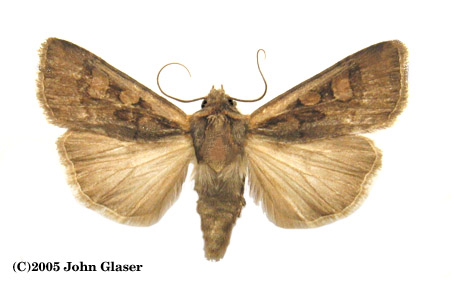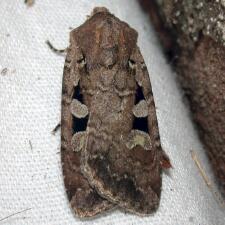Map Snapshot





26 Records
Seasonality Snapshot
Source: Wikipedia
This article includes a list of general references, but it lacks sufficient corresponding inline citations. (June 2018) |
| Euxoa tessellata | |
|---|---|

| |
| Scientific classification | |
| Domain: | Eukaryota |
| Kingdom: | Animalia |
| Phylum: | Arthropoda |
| Class: | Insecta |
| Order: | Lepidoptera |
| Superfamily: | Noctuoidea |
| Family: | Noctuidae |
| Genus: | Euxoa |
| Species: | E. tessellata
|
| Binomial name | |
| Euxoa tessellata (Harris, 1841)
| |
| Synonyms | |
| |
Euxoa tessellata, the tessellate dart or striped cutworm is a moth of the family Noctuidae. It is the most widespread Euxoa-species in North America. It is found from Newfoundland to Alaska, south in the west to California, Arizona, New Mexico, south in the east to Florida. It seems to be absent from Texas and adjacent eastern states.
The wingspan is 30–38 mm. Adults are on wing from June to September.
The larvae feed on tobacco, various garden crops, as well as the leaves of apple, cherry and pear.
The tessellata GROUP in North America consists of two species - E. tessellata and E. plagigera. The two species are dissimilar in appearance, but are related by genital features Lepidoptera genitalia. They will hybridize in the lab, but the result is a sterile offspring.[1]
References
[edit]- ^ Lafontaine, J. D., 1987. Noctuoidea: Noctuidae (part) in Dominick, R. B., et al., The Moths of America North of Mexico, fasc. 27.2
External links
[edit]- Images
- Bug Guide
- The Noctuinae (Lepidoptera: Noctuidae) of Great Smoky Mountains National Park, U.S.A.

